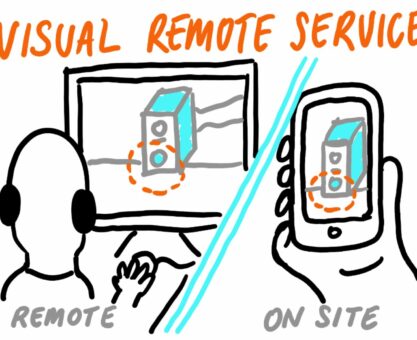The chaos that we all found ourselves thrown into during the global pandemic has meant a lot of introspection from both a personal and corporate perspective for all of us. Yet as we move forwards into the new realities of a post-Covid-19 world Nick Frank outlines where we can find the resilience to not only rebuild, but improve…
Organisational Resilience: “The ability to survive a crisis and thrive in a world of uncertainty. Resilience is a strategic capability. It isn’t just about getting through crises. A truly resilient organisation has two other important capabilities – the foresight and situation awareness to prevent potential crises emerging, and an ability to turn crises into a source of strategic opportunity.”
Source: www.resorgs.org.nz
If there is one thing that we will learn from the current Coronavirus chaos, is that it is resilient people and organisations who survive and thrive! Technology, infrastructure and education can help. But it is the determination of people to do the right thing and not be afraid of adversity that sees families, companies and nations through tough times.
After the fire fighting will come the rebuilding, where Service Leaders will have to decide the future shape of their organisations in a challenging world. Not only will they have to contend with meeting pent-up demand with depleted resources, the challenges of digital disruption and climate change will not have gone away. Companies’ survival will depend on how well they can adapt and evolve in a world even more economically constrained. I believe developing personal and organisational resilience will be the key to developing processes, technologies and ways of working that will enable us to overcome the significant obstacles in our path. As I sit in ‘home isolation’ with my family, I can feel a mix of emotions. On one hand fear and confusion. On the other determination and love. These are amplified by the news, social media and radio reports where we see memes on toilet role or rants on social distancing, as well as the odd grand patriotic political speech.
Service Management’s GREATEST Challenge
I find myself asking, what do I need to do to move through this? It is certainly not to give in to fear, which is there in some shape or form in all of us. It is more to focus on the what we can do, what we can control, what we can influence. The good news is that these are all aspects of our personality and the mindset we nurture for ourselves. Indeed, this ‘growth’ mindset comes way before we think about technology, processes or even organisation.
Maybe test this assertion for yourself by thinking back to a challenging time you have faced. What got you through it and most importantly what did you learn? For myself this was the birth of our second child. My wife had a very complicated pregnancy with early contractions, which resulted in us going to A&E on multiple occasions, driving to hospital, not knowing whether our baby was alive or dead.
“I would suggest that now is the perfect time to build resilience in ourselves and our organisations…”
My biggest learnings were to be able to live in the moment, acknowledge the fear then move forward, take one step at a time, to focus on what we could control, and not all the other stuff. We were lucky that it was a happy ending, that on reflection helped us to become more resilient and able to handle adversity.
Back to the present days question, “Where do we go from here?”
I would suggest that now is the perfect time to build resilience in ourselves and our organisations, as we move into what hopefully will be more fruitful times. It starts with leaders who recognise that their people are key to current and future profitability. Those who have let fear enter their hearts and pre-maturely downsized their teams to fit the perceived economic reality, will lose the trust of their employees. Their road to resilience will probably be longer and harder than those that retain the goodwill. Indeed, research shows that organisations that survive and flourish after hardship are those that have a committed and motivated staff.
“Build resilience in your people, and the resilience of your technology, processes and organisation will evolve as well…”
The benefits are not just people and organisations who are faster to adapt to changing circumstances, there is a solid economic rational as well. Studies such as this one from PWC in 2014 show “initiatives and programs that fostered a resilient and mentally healthy workplace returned $2.30 for every dollar spent — with the return coming in the form of lower health care costs, higher productivity, lower absenteeism and decreased turnover”. So, resilience does pay!
As we live through the COVID crisis and start to come out the other end, we have a great opportunity to build resilience into ourselves and our organisations. There are many models for individual & organisational resilience, but from a Service Leaders perspective, there are three key messages I would recommend to focus on:
- Self-Belief
- Focusing on solutions
- Always Learning
Self-Belief
If you or your organisation do not have a strong sense of purpose, then whatever models or philosophies you choose to follow are unlikely to succeed. At a leadership level this means being able to truly role model the values that most modern organisations espouse such as respect, integrity and accountability. Teams respond to how they see their leaders communicate and demonstrate these values and behaviours. But good values are only part of the story.
People need to understand that the organisation has a clear direction so that they can readily identify with its “Purpose” and “Culture”. If all these messages are coherent, then self-belief will grow and flourish. Perhaps one of the simplest actions you can take is to practice the art of delegation. The more people can influence the what and how of their jobs, the more they are engaged, own and believe in what they can do.
Focusing on Solutions
People and companies who can focus on solutions are constantly moving forward. These are people who can recognise and articulate problems, but do not dwell on who to blame for a situation, but rather how to move forward and solve the challenges. Build this into all your communications.
“The huge customer problems that your teams have faced means that they must have focused on finding new ways to operate and deliver to customers…”
Emphasising this step by step approach towards the goal, encourage appropriate risk taking and reward teams for finding solutions. Encourage collective responsibility but hold individuals to account. You will know your organisation is moving in the right direction when you hear your people using the phrase “Yes, And….” rather than, “Yes, But”.
Always Learning
The organisations most likely to adopt new ways of doing things or those where learning and change is embedded into the way of life. These are the organisations where people seem to have new roles every 3-4 years. Although too much change can be disruptive, it is a very good indicator of how good an organisation is at taking on and running with new ideas. We have heard many service managers talking about how they have had crash courses in remote diagnostics or augmented reality technologies.
What an opportunity to learn! To build on these experiences, make sure you re-iterate the importance of always reviewing lessons learned? Indeed, the recurring themes from companies that demonstrate resilience are: Communicate, Communicate, Talk, Listen, Take Action and Communicate again!
These three behaviours allow us to face reality in the present, pulling on past experiences and others to find the best solutions. Whether they are applied in personal situations such as a difficult pregnancy, or in our professional lives, there is always an opportunity to grow. In the current crisis, all business people I have spoken to have had these three fundamental beliefs well a truly shaken. Just surviving should show the importance of self-belief in overcoming adversity.
The huge customer problems that your teams have faced means that they must have focused on finding new ways to operate and deliver to customers. I would be very surprised if your people have not got some learnings and ideas out of these experiences. If you can now build on these three behaviours, then the challenges of digital disruption and global warming may be transformed from threat to opportunity!
If you would like to know more about how to take your team on this journey, then contact Nick at [email protected]
Further Reading:
- Read more about resilient organisations
- Read more about building personal resilience in the workplace
- Read more about Ken Ginsberg’s 7 Cs
- Read more about Leadership
- Read more of Nick’s articles for Field Service News
- Read more about Nick’s work with Si2 Partners
- Follow Nick’s work on Twitter
- Connect with Nick on LinkedIn
- Access over 20 premium resources on recovering from the pandemic and building a new normal (PRO)
- Watch over 50 hours of in-depth interviews with industry leaders in our digital symposium (PRO)







